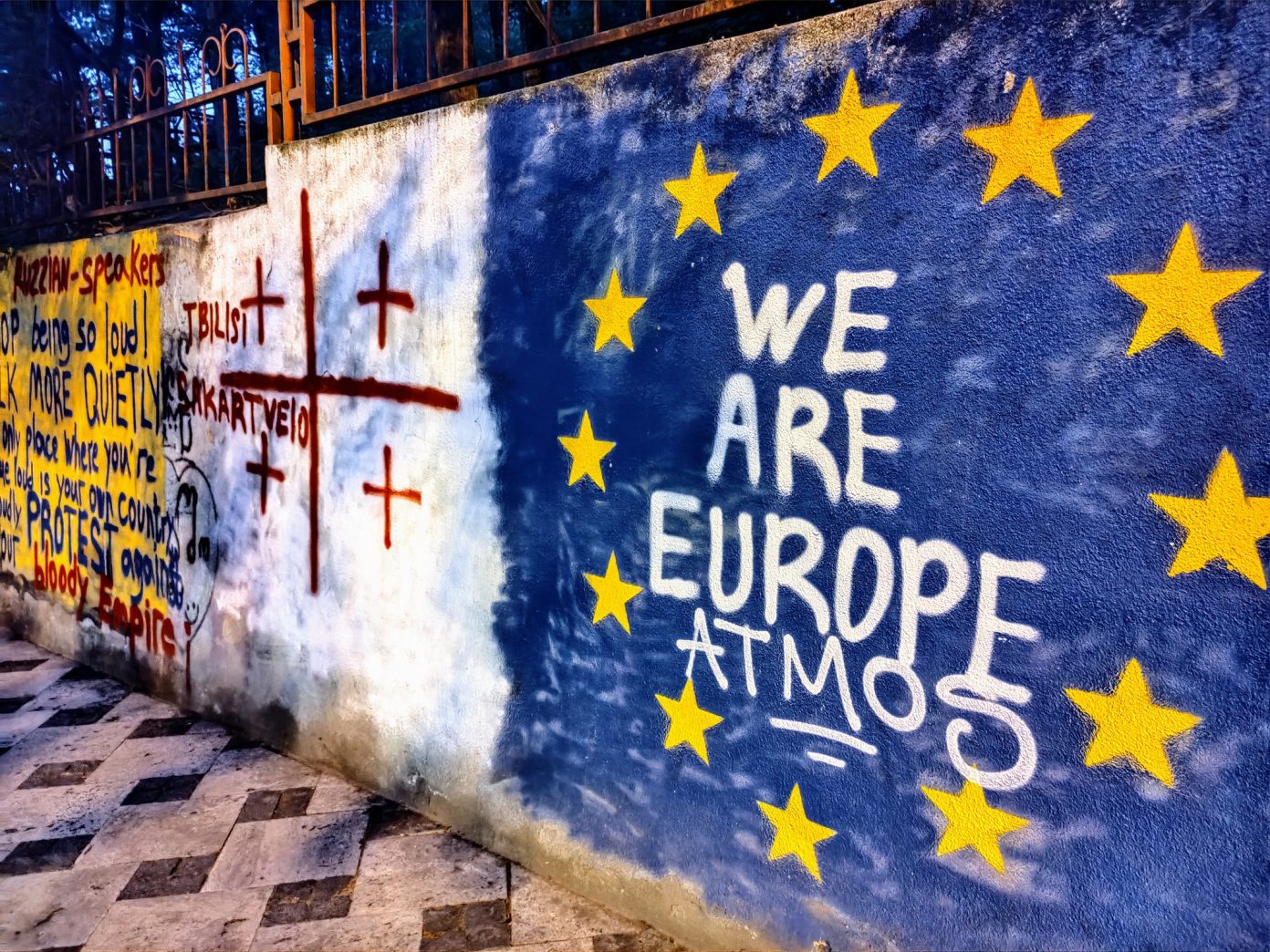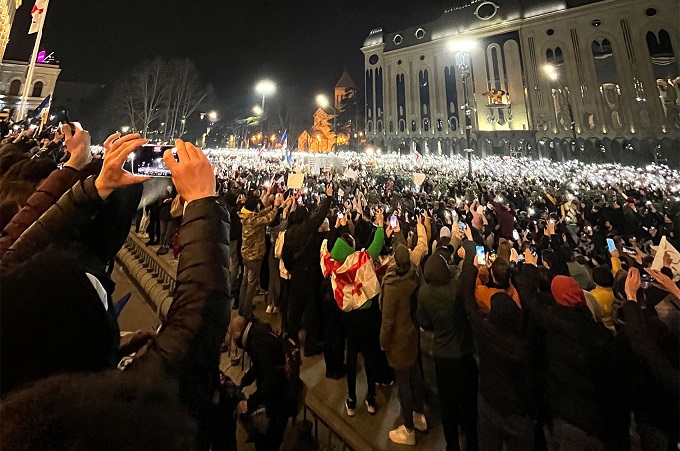
The Republic of Georgia faces a critical juncture ahead of parliamentary elections in October 2024 as escalating political tensions, driven by the ruling Georgian Dream (GD) party's increasingly authoritarian tendencies, threaten the country’s democratic future and its pro-Western trajectory. This situation demands a nuanced understanding of Georgia's complex political landscape and a strategic response from Western partners. Here, a number of trends are noteworthy.
The first is democratic backsliding and a consolidation of authoritarian power. Georgian Dream, once a self-identified social democratic reformist coalition, has embraced right-wing populism and consolidated power in recent years. Its controversial "foreign agent" law, which went into force on August 1st, is clearly aimed at silencing critical NGOs and media ahead of national elections, and represents a blatant attempt to curtail media freedom, target civil society, and suppress dissent.
These policies, which are closely aligned with Russian information operations in the region, are reminiscent of cyclical patterns in Georgia's contemporary history – entailing "democratic breakthrough, democratic advance, democratic rollback, authoritarian consolidation, regime weakening, and regime collapse." Today, the country appears headed for another round of the same. This pattern reflects entrenched challenges in Georgia's political culture, including a tendency towards centralization of power, a disconnect between elites and the broader population, and a zero-sum approach to politics where losing power is seen as an existential threat.
The second are the shifting power dynamics in Georgian society. A new generation, disillusioned by GD's policies and yearning for a European future, is at the forefront of today’s opposition, shifting the locus of resistance from traditional political parties to street protests. Youth see the West as Georgia's only viable path, but their impact is limited by their concentration in the national capital, easy disillusionment and high standards, as well as potential election apathy or disorganization. Despite these potential pitfalls, this generational divide creates a possible opportunity for a new political class to emerge, uniting youth activism with experienced civil society actors. This could happen, post-election, if the remnants of the old elite political class emigrate amid government crackdown.
Third, we are witnessing an erosion of public trust. In recent months, governmental actions have played on existing societal issues like corruption, inequality, and a sense of injustice, fueling widespread discontent and emigration. Nevertheless, the opposition is currently weak and disorganized, and has not shown any focus on these issues. Opposition dynamics continue to be largely centered on mostly unpopular personalities in the political elite, rather than any particular socio-political movement. However, popular discontent with GD has crested because of its anti-Western and anti-democratic positions, which gives even a fractured opposition a potential opportunity heading into the elections. The escalating use of force against largely peaceful protesters has only deepened the chasm between the government and the people. Emigration from Georgia doubled in 2023, primarily driven by those seeking work abroad. And Transparency International's Corruption Perceptions Index indicates a notable three point decline for Georgia over the past year.
Finally, there is a misunderstanding of how Georgians see "The West." U.S. foreign policy professionals often underestimate the deep-seated resentment towards the former ruling party, the United National Movement (UNM), and overestimate the depth of pro-Western sentiment in Georgia. The prevalent narrative of overwhelming pro-Western sentiment in Georgia, often quantified as 80-85% support, is simplistic and in some respects misleading, ignoring complex realities on the ground. While the pro-west moorings of the population are resilient, they are tempered by popular frustration with Western inattention and popular prioritization of local socioeconomic issues.
Western actors bear some responsibility for this state of affairs, often equating Westernization with superficial markers like proficiency in English. The West has also largely taken pro-west sentiments for granted, and shown little initiative to integrate Georgia into Euro-Atlantic structures – giving anti-Western actors an opportunity to gain ground. Moreover, for a certain segment of the Georgian population that is quite poor and lists economic issues at the top of its concern, support for the West is shallow. For these voters, the populist, right-wing narrative (stressing order, stability, unity, and control over culture,) may be more comfortable and understandable.
HIGH STAKES FOR THE FUTURE OF GEORGIAN DEMOCRACY
Against this backdrop, the upcoming parliamentary elections are crucial, with a high likelihood of GD resorting to fraud to maintain its grip on power. As such, the potential for post-election unrest and violence is significant, with a legitimate risk of external actors, particularly Russia, exploiting the instability for their own benefit. As a result, the U.S., historically (though unintentionally) indifferent to the nuances of Georgian politics, now faces a critical inflection point in its relationship with Georgia.
Here, a nuanced American policy – one that strengthens democratic institutions, imposes consequences for anti-democratic behavior, and doubles down on support for Georgia’s pluralistic development – would go a long way toward setting Tbilisi on the right path once more. By leveraging diplomatic, economic, and security tools, the U.S. and its allies can play a crucial role in supporting Georgia's democratic future. But this support must be coupled with a clear-eyed assessment of the challenges involved, and with a willingness to impose concrete consequences for democratic backsliding.
Ultimately, it remains up to Georgians to seize this moment and chart a course towards a more stable, prosperous, and democratic future. Washington’s job is to give them the tools to do so.
ABOUT THE AUTHOR:
Laura Linderman is Senior Fellow and Program Manager at the Central Asia-Caucasus Institute of the American Foreign Policy Council.





